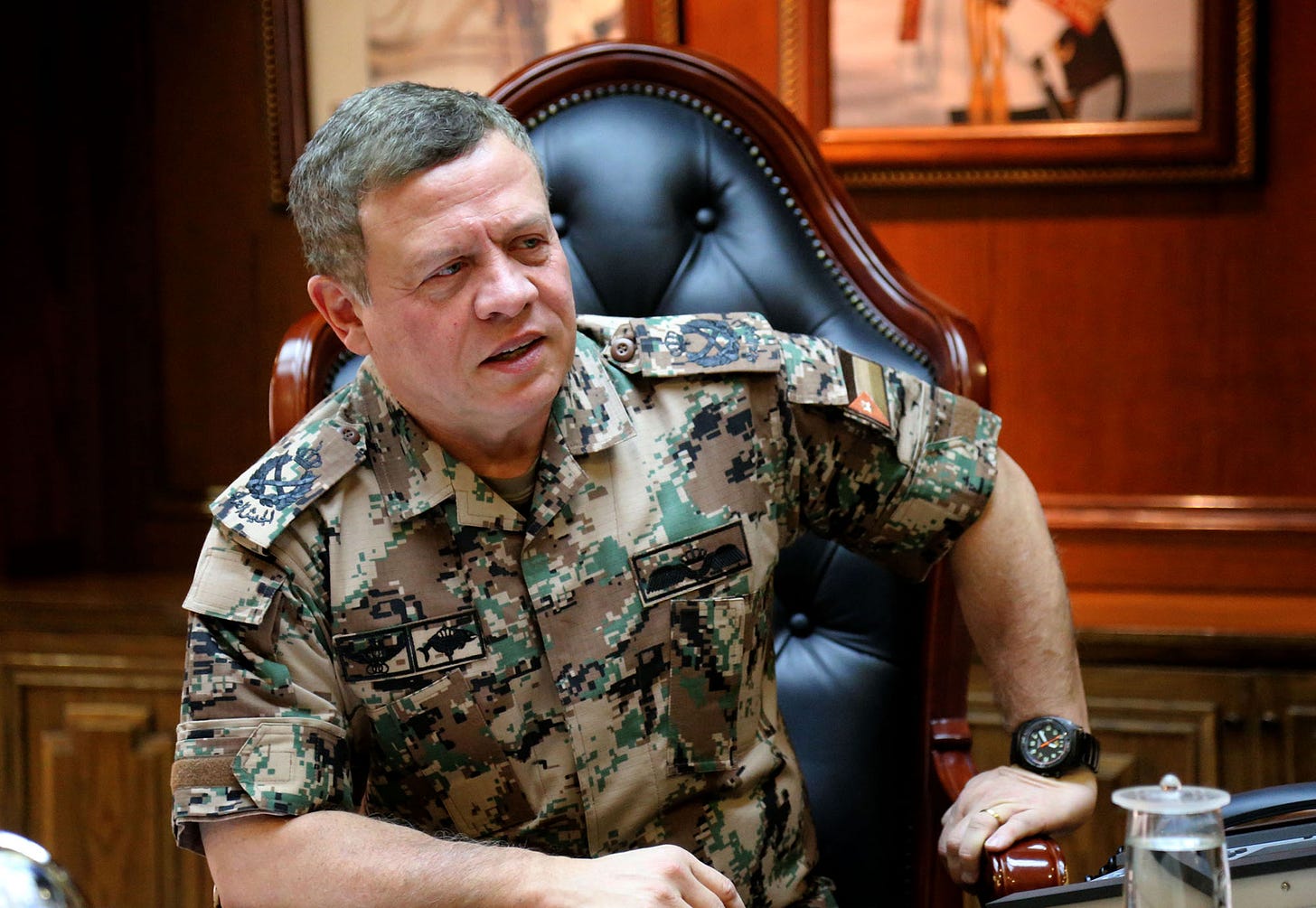Trump's Gaza 'Clean Out' Plan: How to Win Enemies and Destabilize Allies
Forcing Palestinian resettlement into Egypt and Jordan will shatter regional peace
An edited version of this article was originally published by the Middle East Forum
President Donald Trump’s plan to force Egypt and Jordan to accept more than 2.3 million Palestinian refugees from Gaza as part of a plan to “clean out” the territory will backfire on Jerusalem, destabilizing the two peaceful states on Israel’s borders in ways that will turn them into enemies.
Egypt and Jordan have rejected the proposal, with Egypt’s President Abdel Fatah el-Sisi dubbing it a “red line” for the country that “cannot be tolerated or permitted.” Jordan’s Foreign Minister Ayman Safadi declared, “Jordan is for Jordanians, Palestine is for Palestinians.”
Trump has remained steadfast in his expectation that Jordan and Egypt will agree to his demands, telling journalists, “They will do it. They will do it. They’re gonna do it, okay? We do a lot for them, and they’re gonna do it.”
Prime Minister Benjamin Netanyahu called the plan to relocate Gazans "remarkable" and "the first good idea" he has heard for solving the conflict. Defense Minister Israel Katz ordered the Israel Defense Forces to prepare for the "voluntary" departure of Gazans.
Given all that Israel suffered during the October 7, 2023, massacre of civilians by Hamas and the subsequent bloody war, such a proposal is alluring; indeed, on the surface, it presents the opportunity to terminate the Palestinian insurgency, a persistent thorn in Israel's side.
However, the geopolitical equivalent of packing clutter into a stuffed closet, wishing the door would hold, Trump's deceptively simple 'solution'—much like a flimsy latch on an overcrammed cupboard—will unleash precisely the chaos Israel seeks to contain.
Jordan, currently hosting over 2 million Palestinian refugees along with 710,000 other refugees, is under significant economic strain. The country has the second-highest ratio of refugees per capita globally.
With a debt-to-GDP ratio of 113.8% in 2023, an unemployment rate of 21.4%, and youth unemployment soaring to 43.7% in 2024, Jordan's fragile economy cannot withstand another inrush of refugees.
Accommodating an inpouring of even several hundred thousand additional refugees would further strain the country's already spread-too-thin infrastructure, healthcare, and social welfare systems and provide extremist political entrepreneurs an opportunity to channel public grievances into internal unrest.
Palestinians comprise 55-70% of Jordan's population, increasing from 750,000 refugees in 1948 to 5-7 million today, including 2.4 million registered refugees with Jordanian citizenship.
Adding Gaza's Palestinians into Jordan's already fragile demographic balance risks undermining King Abdullah's authority, on top of the massive setback his popularity would suffer should he be seen as acquiescing to external pressure on Palestinian resettlement.
Gaza refugees, which include battle-hardened Hamas militants, have the potential to replicate the circumstances of the 1970 Black September crisis—where the Palestinian militants tried to overthrow the Hashemite monarchy—with an even larger Palestinian majority.
King Abdullah II's moderate stance toward Israel and ties with the West have placed him at odds with the strong pro-Palestinian sympathies of his population, as Hamas's popularity among native Jordanians and Jordanians of Palestinian descent has skyrocketed in the kingdom since October 7, 2023, Abdullah's security apparatus often serving as the primary buffer against Palestinians charging into Judea and Samaria from the kingdom.
With 35% inflation, a 50% currency devaluation since 2022, and 60% of its 106 million people living near or below the poverty line, Egypt—already struggling to feed its population and importing 80% of its wheat amid soaring food prices—cannot sustainably accept more Palestinian refugees.
Cairo's concerns also lie in the Sinai. An influx of Palestinian refugees threatens to turn the Sinai once again into a hotbed of Islamist militants, especially those who seek to use the Sinai as a launchpad for attacks on Israel. As experience would tell Cairo, Sinai insurgents seldom remain in the Sinai and often attempt, as they had in the past, to attack other areas in Egypt.
Forcing Jordan and Egypt to absorb Gaza's Palestinians would create a risky incentive structure. Not to forget how such resettlement could undermine the Israel-Egypt and Israel-Jordan peace accords, agreements that have served Israel well.
Just as the U.S. government has pressure to intervene militarily in Mexico against cartels to stem migrant and narcotic flows, Jordan and Egypt may feel compelled to take preventive military action against Israel if they believe it intends to expel Palestinians into their territory.
The presence of displaced Palestinians in Jordan and Egypt would create a powder keg: any attacks launched against Israel from these territories would compel Israeli cross-border operations, potentially triggering a war with Jordan and Egypt.
Simply put, the mass relocation of Gaza's Palestinians to neighboring states represents a hazardous exercise in wishful thinking that could unravel decades of painstaking diplomacy. It will not bring Jerusalem peace. On the contrary, it will expand Israel’s threat environment.
Washington and Jerusalem must recognize that pressuring and coercing Jordan and Egypt—two stalwart allies that have maintained peace with Israel through numerous regional crises—into accepting mass resettlement of Palestinians in their countries through threats and unreasonable demands will only make them think: "with friends like Israel and the U.S., under the Trump administration, who needs enemies?"
After all, as leaders with their own self-respect and dignity, there is a limit to the amount of perceived insults Abdullah and Sisi could tolerate in being harassed by the Trump administration into taking steps tantamount to regime suicide.
An edited version of this article was originally published by the Middle East Forum



